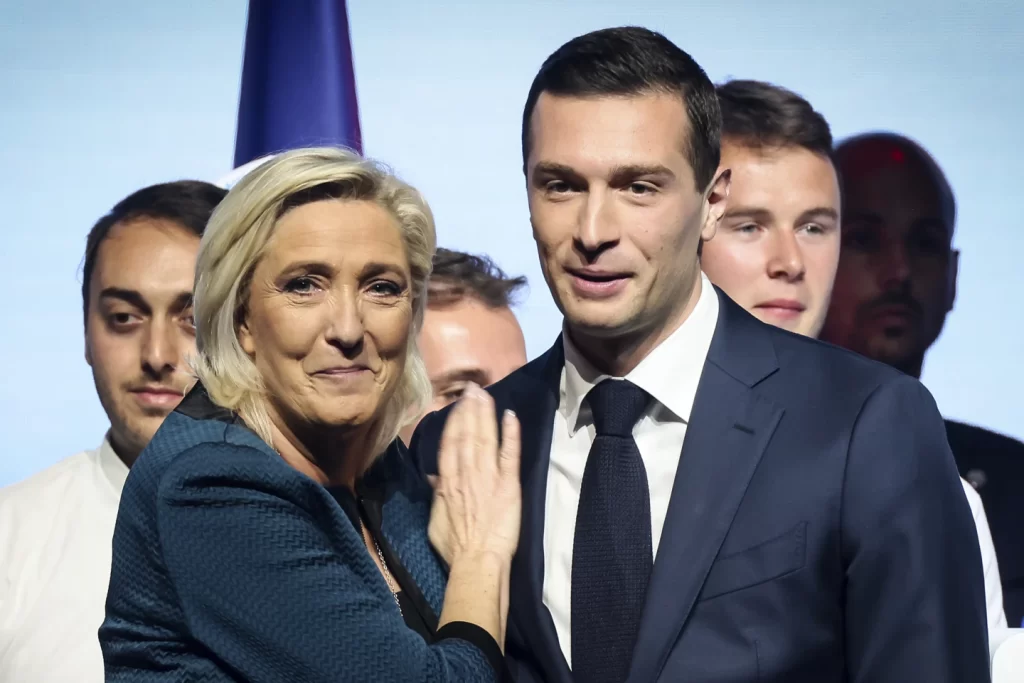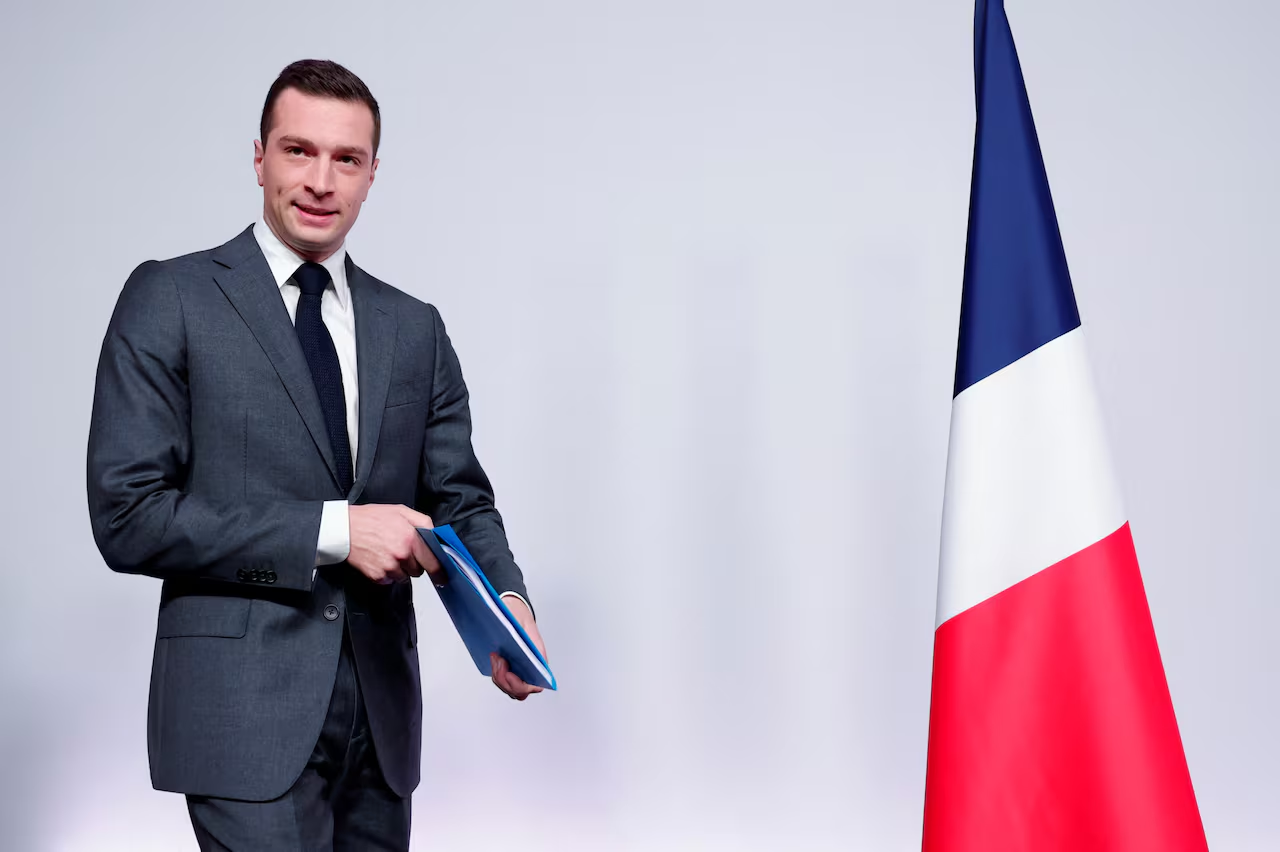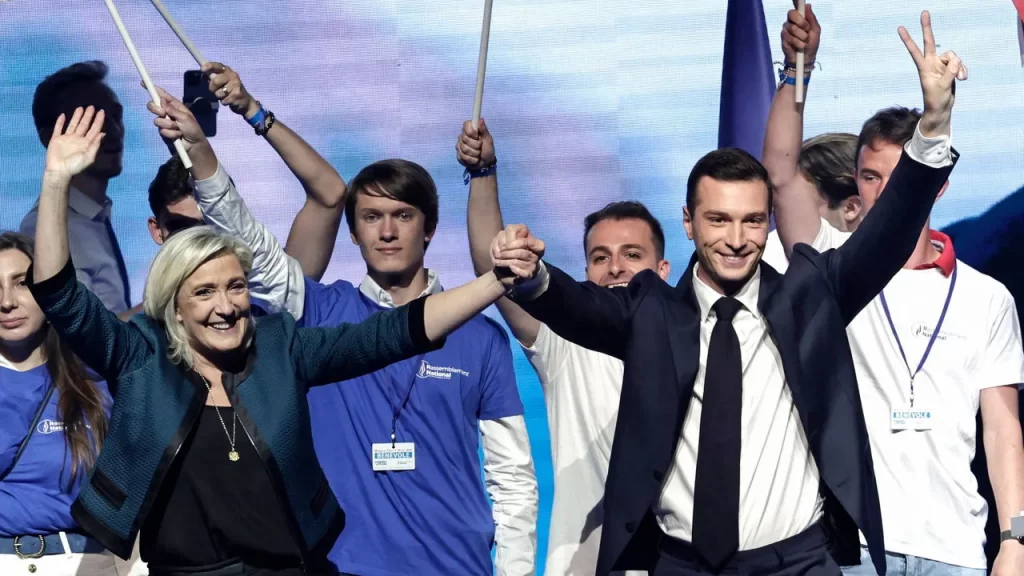Jordan Bardella, the 28-year-old president of France’s far-right National Rally party, stands on the precipice of becoming the world’s youngest prime minister. This remarkable possibility has emerged following the party’s strong performance in the first round of snap legislative elections, with the decisive round set for July 7.

Bardella’s meteoric rise within the National Rally exemplifies the party’s concerted efforts to rebrand and expand its appeal. In 2022, he took over leadership from Marine Le Pen, marking a historic shift as the first non-Le Pen to lead the party in its 50-year history. This transition symbolizes Le Pen’s decade-long campaign to distance the party from its controversial past, including accusations of racism and antisemitism associated with her father and party co-founder, Jean-Marie Le Pen.
Born in 1995 to parents of Italian origin with Algerian roots, Bardella’s background has been crucial in softening the party’s rhetoric on immigration and its stance towards France’s Muslim community. Despite his relatively privileged upbringing, party narratives have emphasized his modest background and early life in a disadvantaged suburb, portraying him as an outsider to the political establishment.

Bardella’s political journey began at 17 when he joined the party, swiftly ascending through its ranks to become a European Parliament member at 23. His rise has been inextricably linked to Marine Le Pen, with Stanford University professor Cécile Alduy describing him as “the creation of Marine Le Pen.”
Central to Bardella’s appeal is his skillful use of social media, boasting over 1.7 million TikTok followers and 750,000 on Instagram. His content spans from campaign material to seemingly candid glimpses of his life, resonating particularly with younger voters.
As a potential prime minister, Bardella has outlined policies including stricter immigration controls, restricting certain social benefits to French citizens only, tax cuts on fuel, gas, and electricity, and a rollback of Macron’s pension reforms. He also proposes extending the ban on cellphones in high schools.

On international matters, Bardella has sought to distance the party from its perceived pro-Russia stance, describing Russia as a “multidimensional threat” to France and Europe. While supporting continued weapons deliveries to Ukraine, he opposes sending French troops to the conflict.
Critics argue that Bardella’s policies could harm the French economy and violate human rights. However, his message resonates with voters feeling economically marginalized or left behind by globalization.
As France approaches the decisive round of elections, Bardella’s potential ascension to prime minister represents a significant shift in French politics. His youth, social media savvy, and the party’s rebranded image present a formidable challenge to the established political order, appealing to a broad spectrum of voters seeking radical change. The coming weeks will determine whether Bardella can translate the National Rally’s recent electoral success into executive power, potentially reshaping France’s political landscape for years to come.
AP



